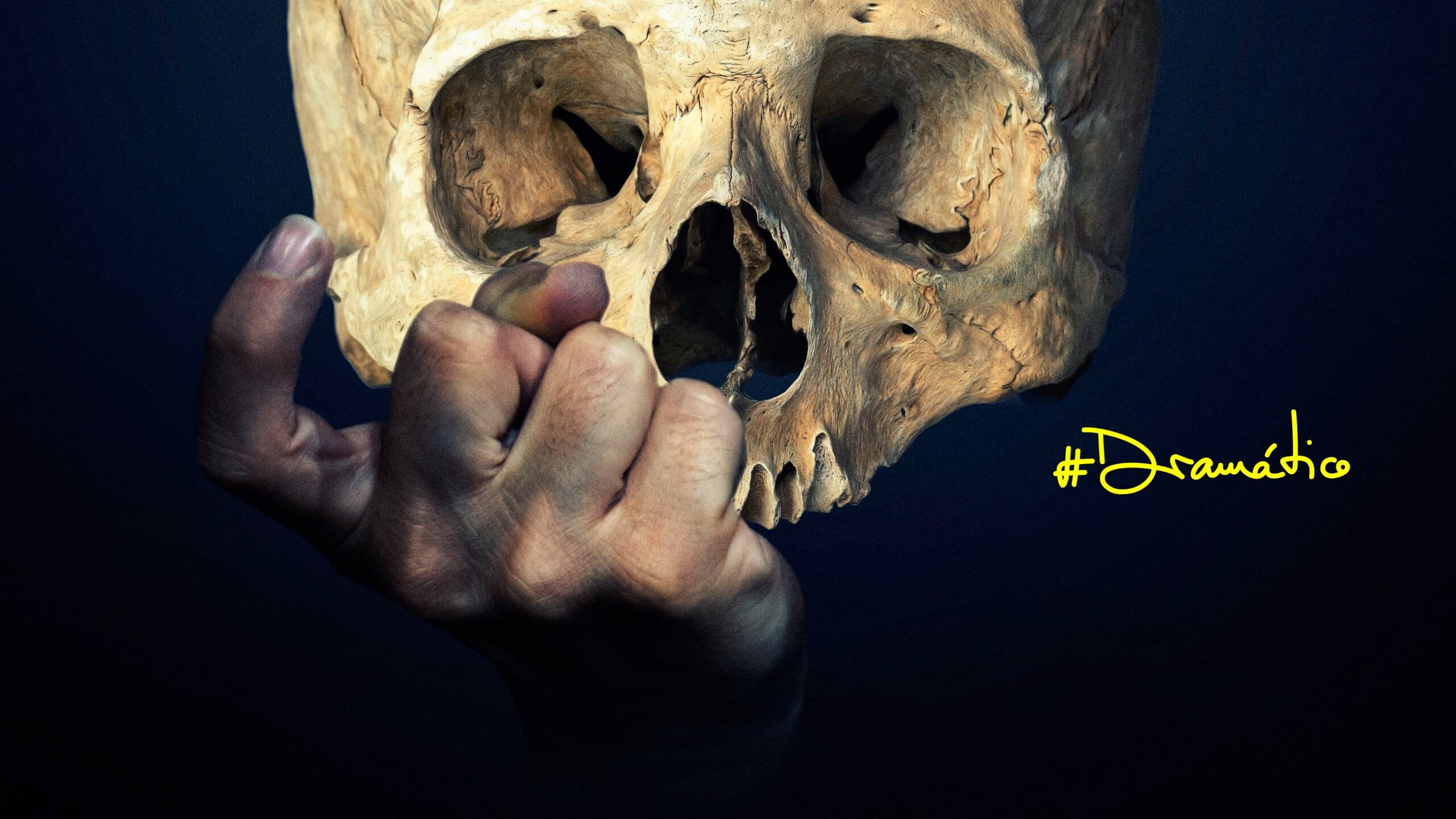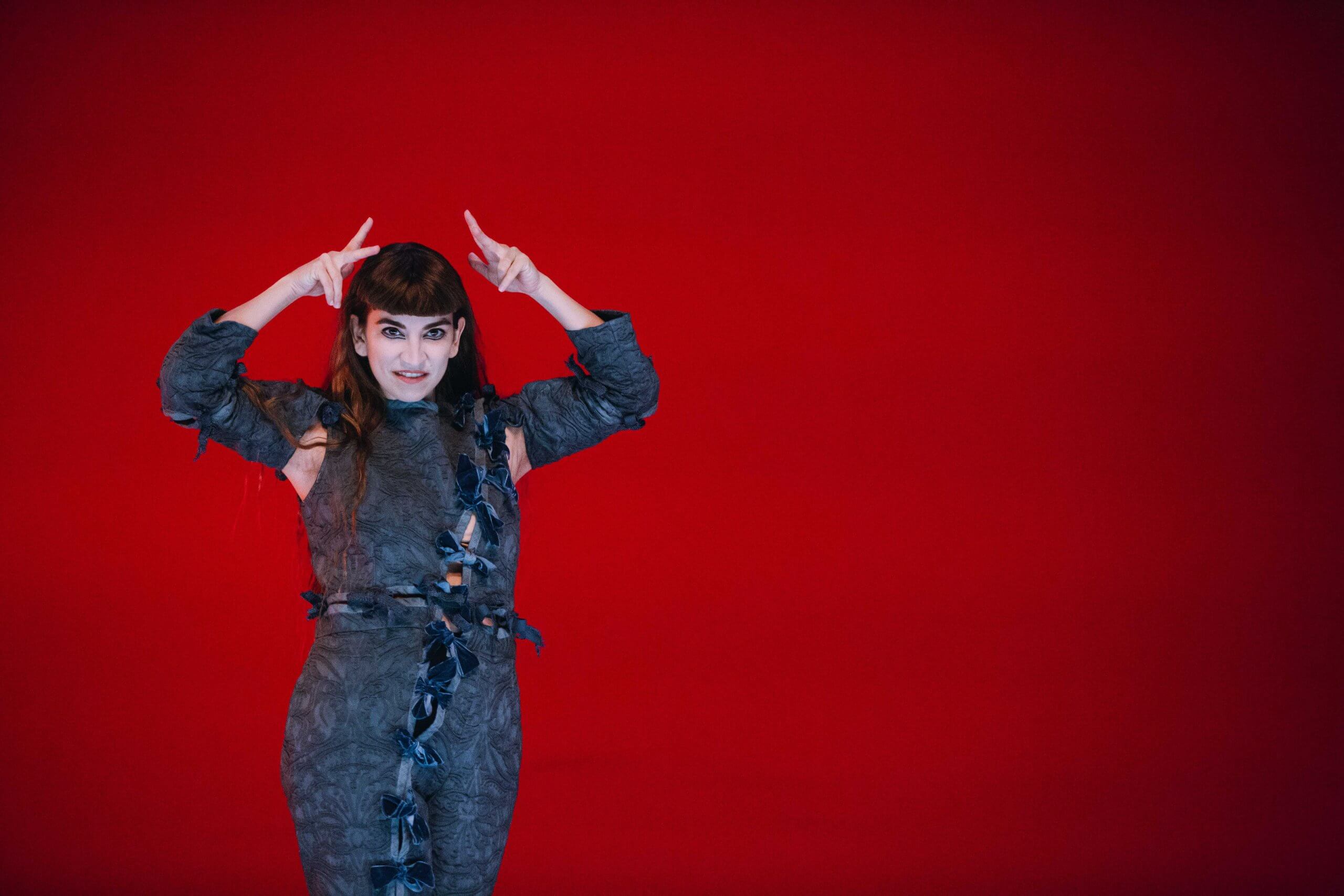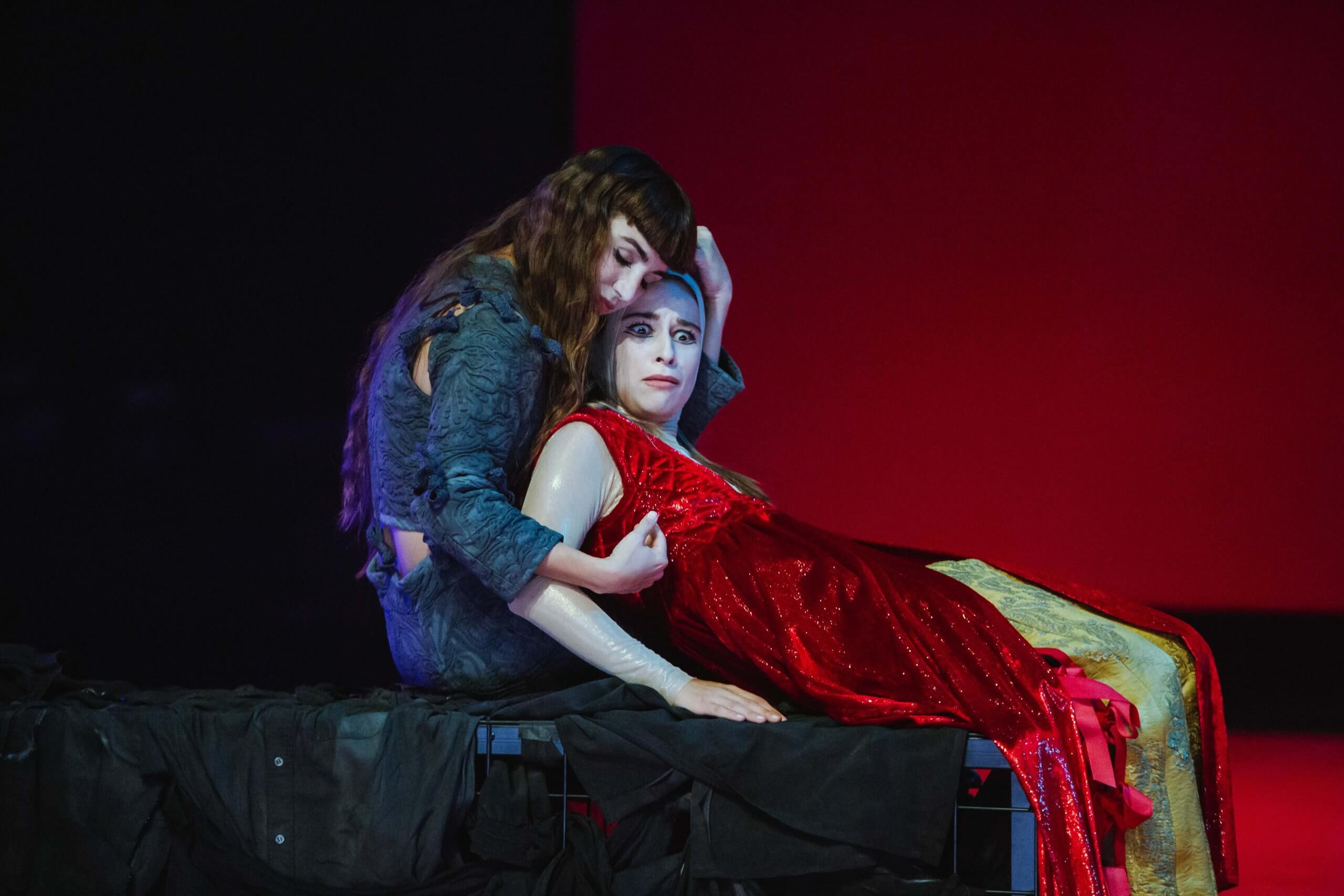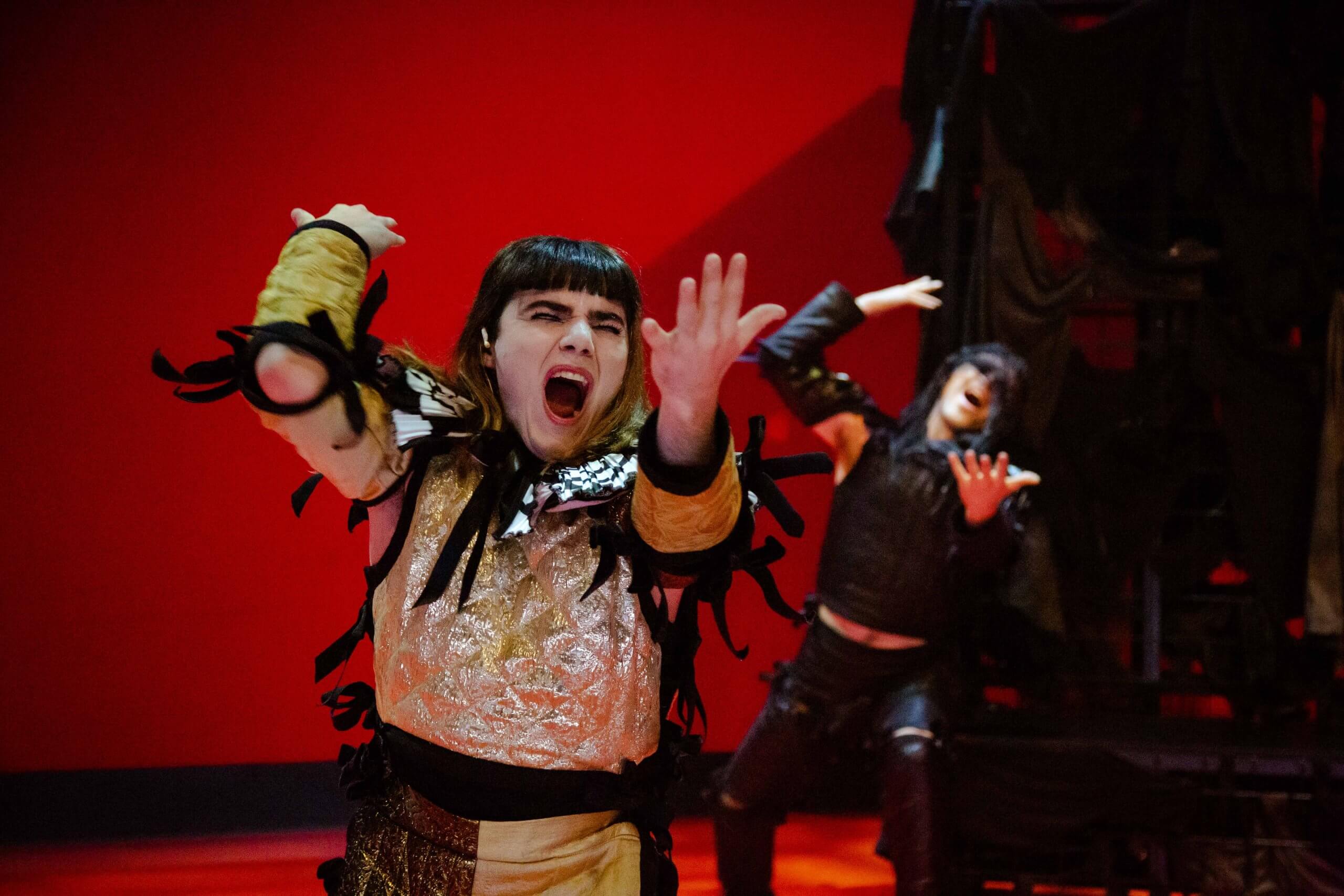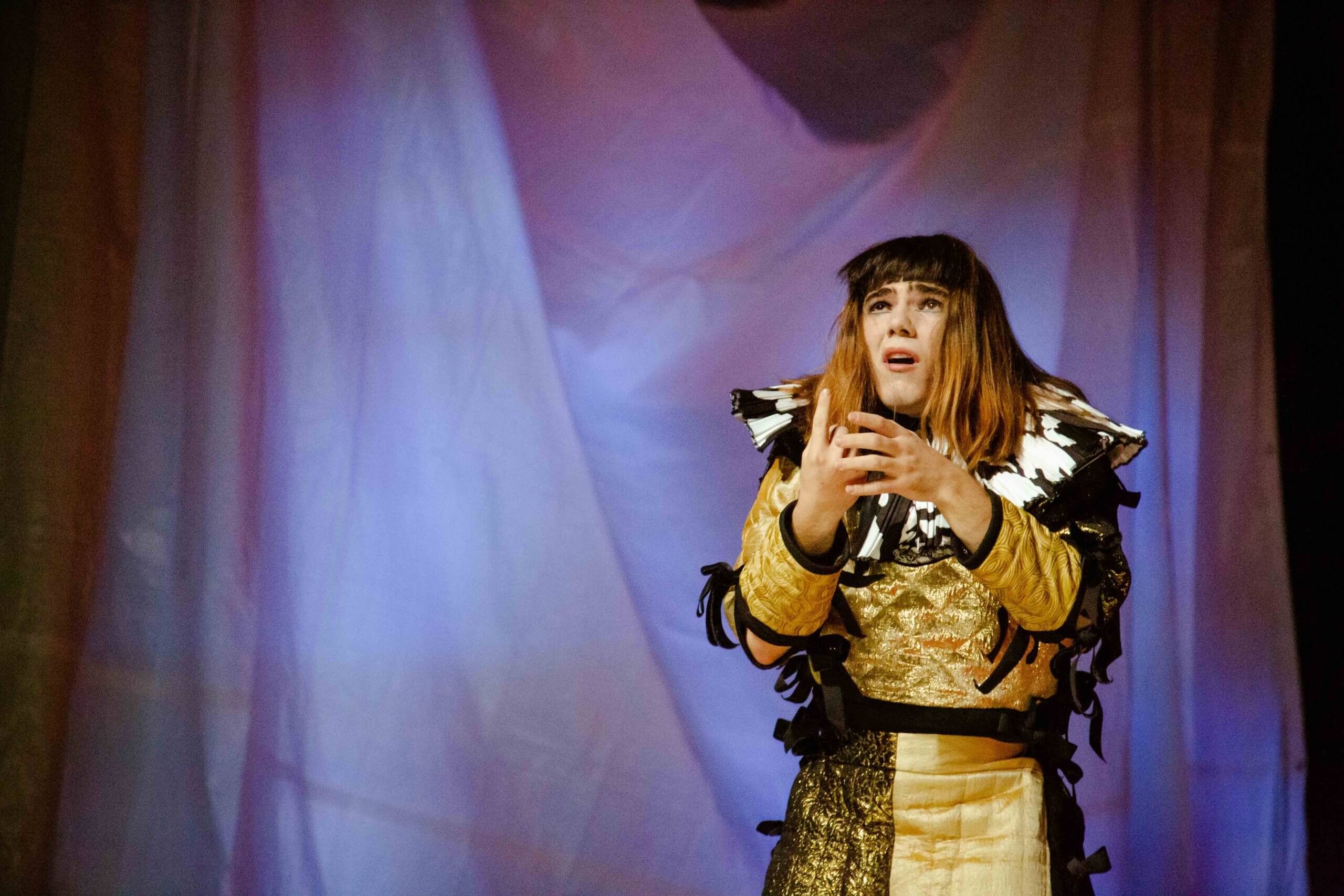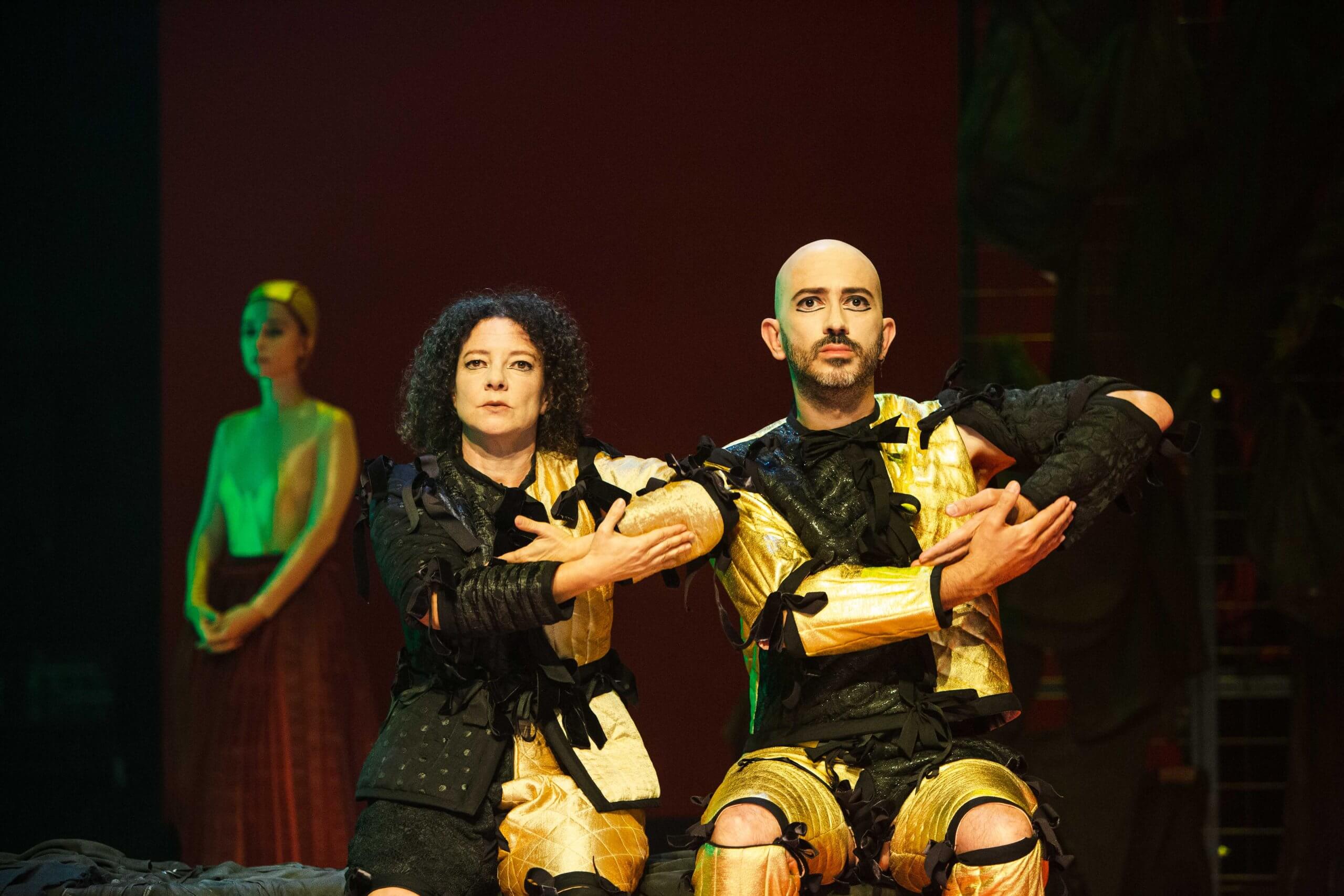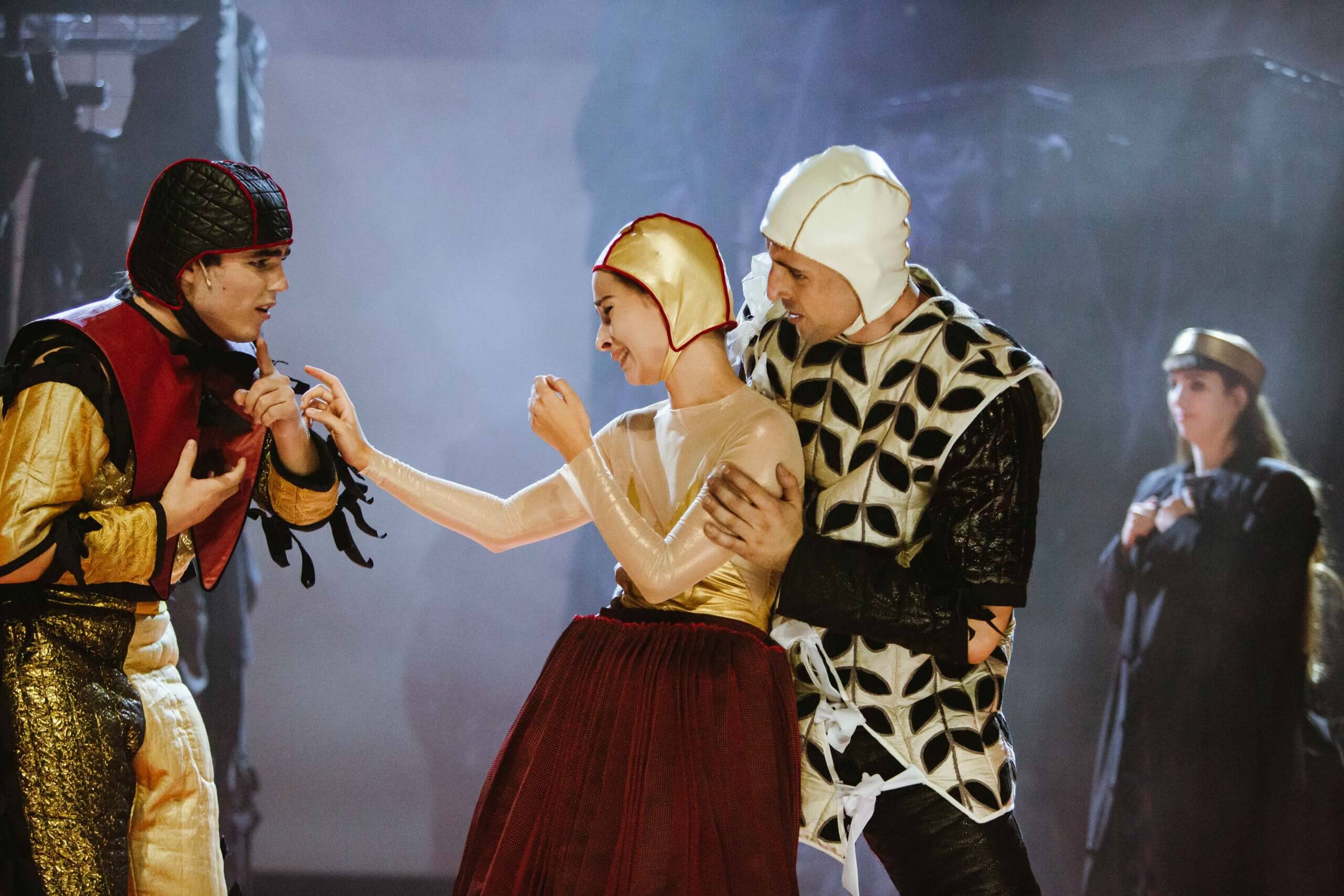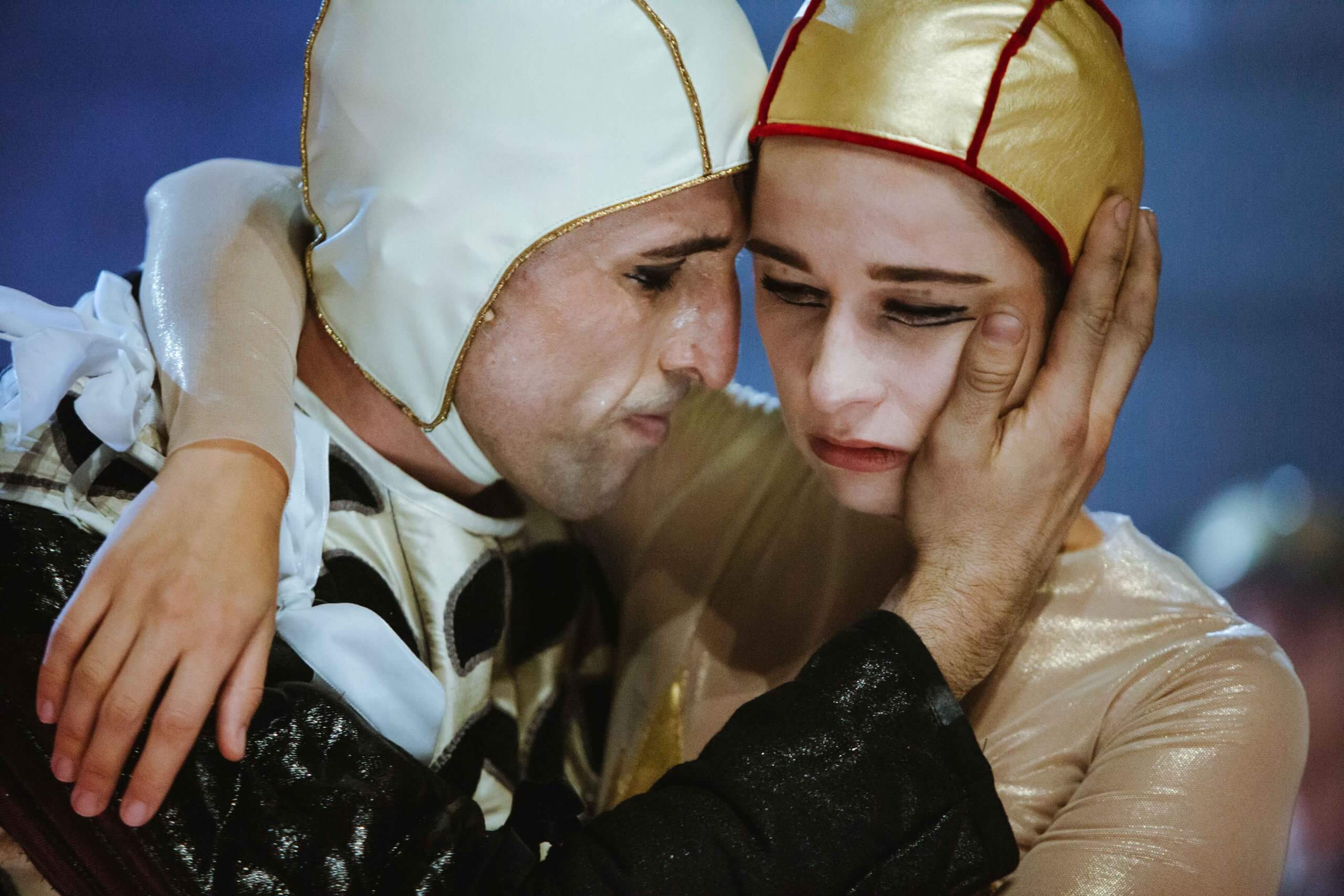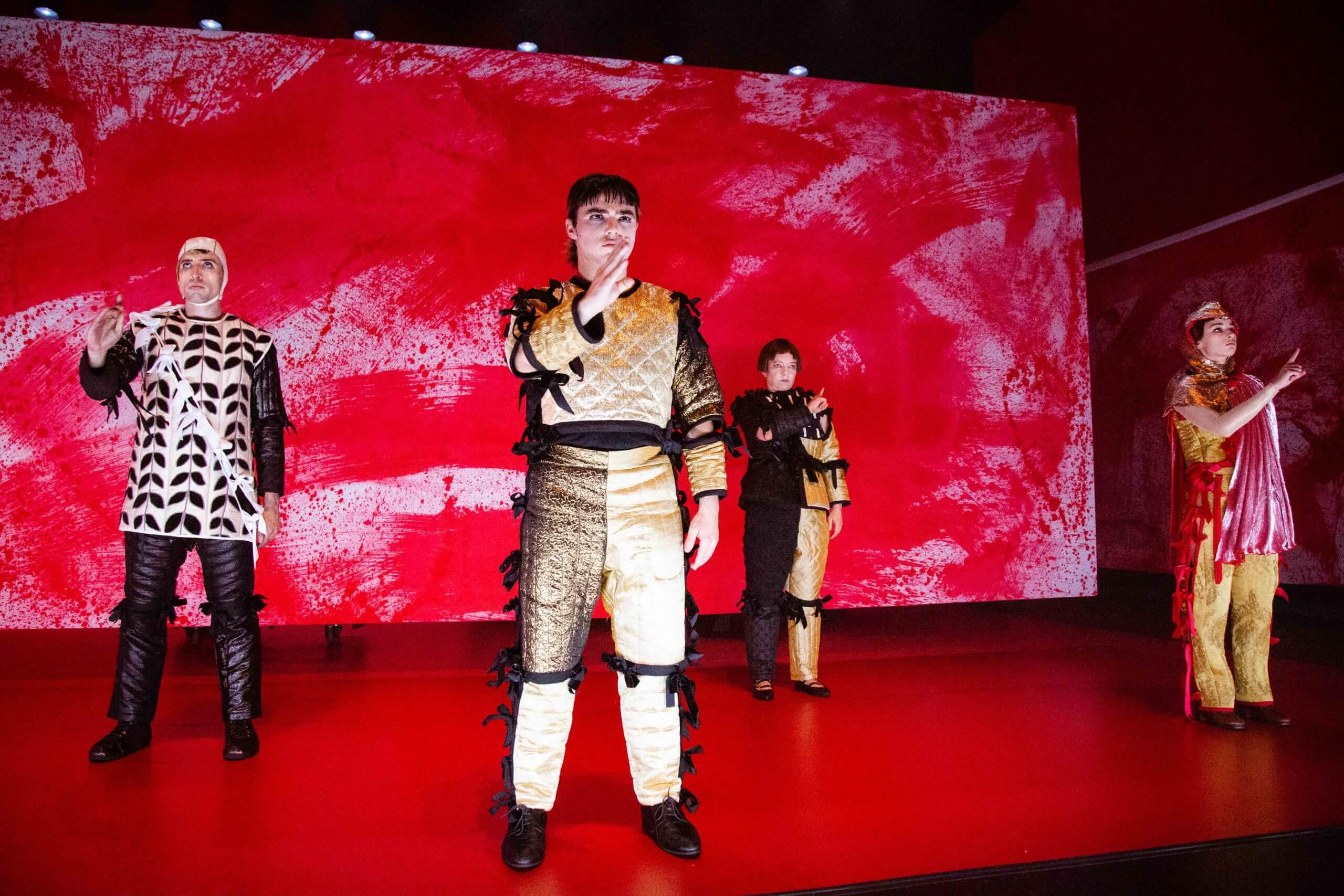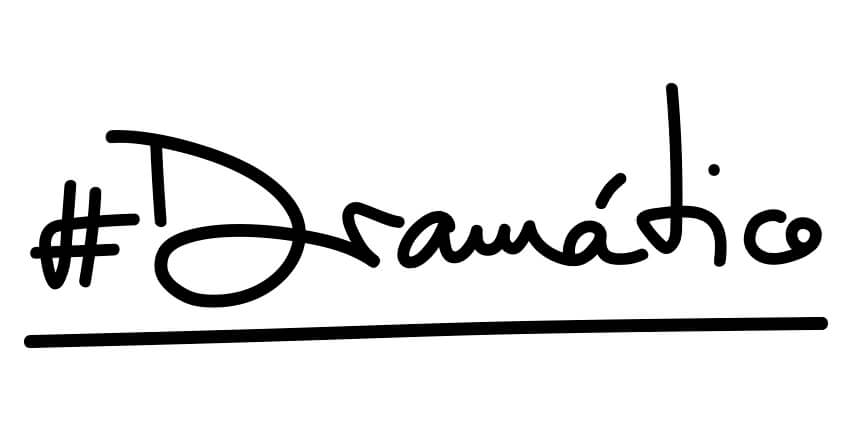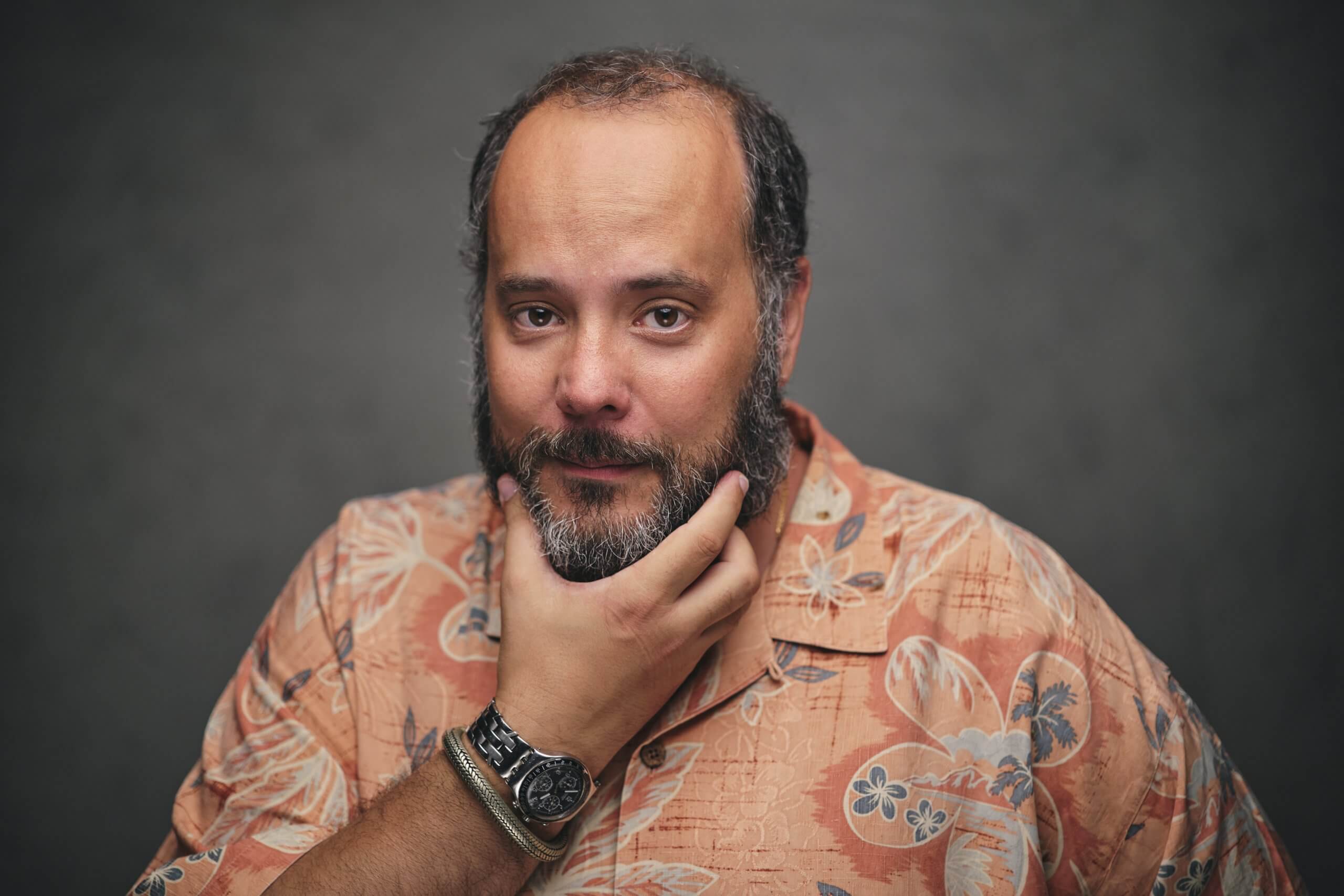We use the strategies of betrayal and manipulation to obtain absolute power, to put the audience in the place of the characters betrayed by Richard III, gradually removing the usual codes of theatre, replacing them with other grammars.
We transform the murder of Richard III into the possibility of the rebirth of a more diverse theatre, attentive and in dialogue with other languages.
we leave human brutishness behind to find a happier collective place.
Director’s Note
From the beginning of our work as an artistic collective, we have sought to demystify the preconceived ideas that lock theatre into a dogmatic practice, often prey to an over-reliance on the spoken word and its understanding, as well as a fundamentally rational experience. Our work in the last five years has been to bring to the stage another relationship with the theatrical experience through other bodies, voices and forms of communication, opening new perspectives of practice and enjoyment, whether they are more rational, intuitive, concrete or abstract.
In Richard III we are moved by the possible contradiction between the play and its author and the work we are developing: we start from the physical non-normativity of a bellicose, ego-centred character to argue that the norm can lead to alienation and lack of empathy; we use the strategies of betrayal and manipulation to obtain absolute power, to put the audience in the place of the characters betrayed by Richard III, gradually taking away the usual codes of theatre, replacing them with other grammars; we transform the murder of Richard III into the possibility of the rebirth of a more diverse theatre, attentive and in dialogue with other languages; we leave human brutishness behind to find a happier collective place.
Marco Paiva


